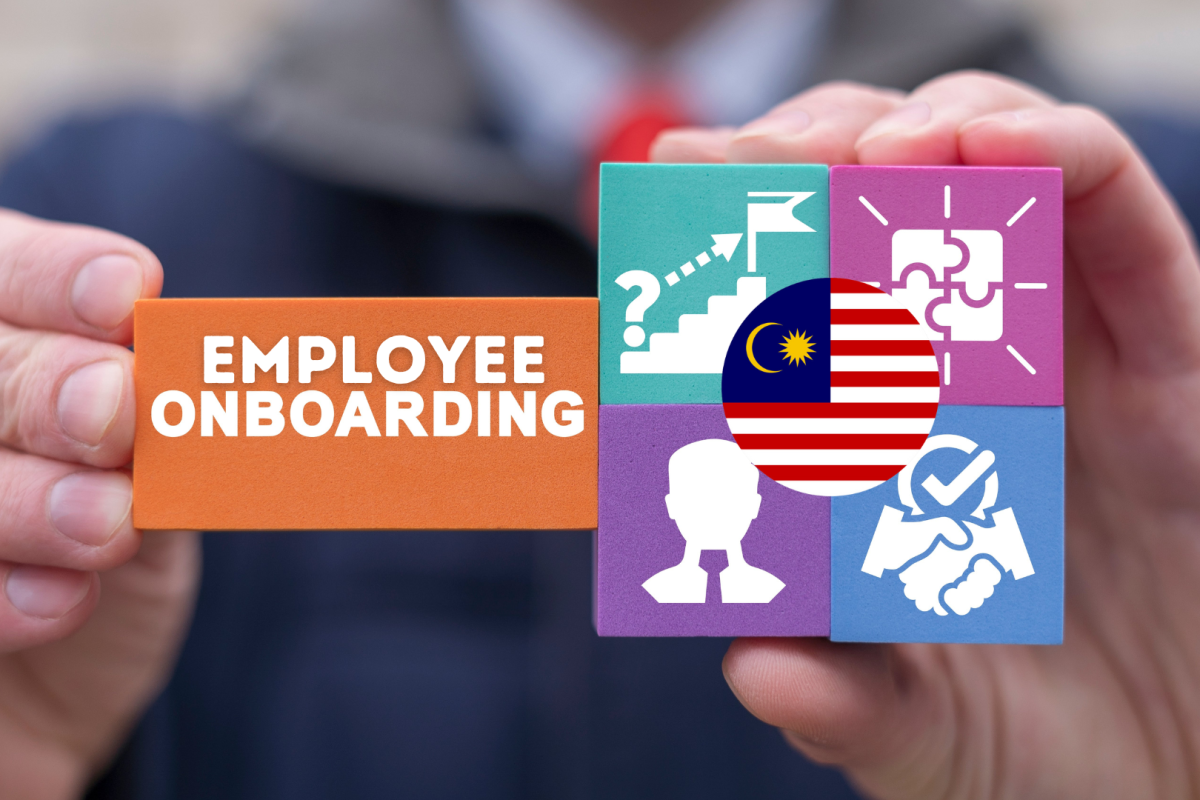As an employer expanding into Malaysia, ensuring compliance with labor laws and preparing the right onboarding documents is crucial. This guide will help you understand the key documents and steps for onboarding employees in Malaysia.
Onboarding Process: Step-by-Step Explanation
Step 1: Job Offer and Acceptance 📩
Trigger: After the interview, you’ve selected the candidate.
Action: Issue a formal job offer that outlines key employment terms such as:
Job Title: [Position Title]
Compensation: MYR [Salary Amount] per month, which should align with the market rate and comply with minimum wage laws.
Start Date: [Start Date], which should allow adequate time for notice periods and onboarding.
Working Hours: Align with Malaysian labor laws, typically between 40 to 48 hours per week, depending on the sector. Additionally, it’s essential to clarify expectations around overtime pay, as any work beyond the standard hours may incur additional costs.
Outcome: The candidate reviews and accepts the offer, formally initiating the onboarding process.
Step 2: Employment Contract 📝
When It’s Used: After the offer is accepted.
Action: Draft and sign an employment contract that comprehensively includes:
Job Duties: A detailed description of the role, including key responsibilities and performance expectations.
Salary & Benefits: Clearly state the fixed salary, bonuses, allowances (e.g., transportation, housing), and any non-monetary benefits such as flexible working arrangements or training opportunities.
Termination Clauses & Severance: Outline conditions under which either party can terminate the contract, including required notice periods (generally one month for contracts exceeding two years) and severance pay considerations.
Probation Period: Typically 3-6 months, allowing both parties to assess suitability and performance. During this time, conditions for termination are usually more lenient.
Outcome: The contract is signed, solidifying the employment relationship and ensuring clarity on both sides.
Step 3: Employee Provident Fund (EPF) Registration 📄
Legal Requirement: Employers are obligated to register employees with the EPF, which serves as a compulsory retirement savings scheme.
Action:
Enroll the employee in:
Pension Scheme: Employers contribute 13% of the employee’s salary for those earning above MYR 5,000 monthly, and 12% for those earning less. This contribution helps employees accumulate funds for retirement.
Health Insurance: Provide details on health insurance coverage options that may complement the EPF, including any employer-sponsored plans.
Outcome: The employee is fully covered under Malaysia’s social security system, ensuring financial security for retirement.
Step 4: Tax Identification Number (TIN) Registration 💳
Purpose: To ensure proper tax withholding from the employee’s salary, adhering to Malaysian tax regulations.
Action: Register the employee with the Malaysian tax authority (LHDN) for a TIN. This involves filling out the necessary forms and submitting personal identification documents.
Outcome: The employee’s TIN is created, enabling accurate payroll tax deductions, which vary from 0% to 30% based on income levels. This registration ensures that both employer and employee comply with tax obligations.
Step 5: Personal Identification Documents 🔍
Purpose: To confirm the employee’s identity and work eligibility in Malaysia.
Action: Collect necessary documents such as:
National ID or MyKad (for Malaysian citizens): This serves as the primary identification document.
Work Visa (for foreign nationals): Required documentation that provides legal authorization to work in Malaysia. It’s essential to understand the different visa categories, such as the Employment Pass, and assist foreign hires in obtaining the appropriate visa.
Outcome: Identity verification is completed, confirming legal work eligibility.
Step 6: Employee Handbook Acknowledgment 📚
Purpose: To ensure that the employee understands company policies, labor rights, and workplace expectations.
Action: Provide a comprehensive employee handbook that covers:
Work Hours & Overtime: Clearly outline standard working hours, overtime policies, and related compensation.
Leave Policies: Detailed information on annual leave (minimum of 8 days per year), sick leave, and public holidays (typically 11 holidays mandated by Malaysian law).
Health & Safety Regulations: Ensure compliance with the Occupational Safety and Health Act (OSHA), including workplace safety standards and employee rights.
Outcome: The employee acknowledges receipt and understanding of the handbook, establishing a foundation for workplace expectations and policies.
Step 7: Emergency Contact Information Form 🚑
Purpose: To ensure rapid response in emergencies.
Action: Request emergency contact details including:
Name
Relationship
Phone Number
Outcome: Emergency contact details are secured, enabling swift action if needed.
Step 8: Bank Account Information Form 🏦
Purpose: For direct salary deposit, ensuring timely and secure payment processing.
Action: Request banking details such as:
Bank Name
Account NumberOutcome: Bank information is recorded, facilitating salary payments directly into the employee’s account, which is not only efficient but also ensures confidentiality.
Step 9: Non-Disclosure Agreement (NDA) 🔒
Purpose: To protect sensitive company information from unauthorized disclosure.
Action: Have the employee sign an NDA, specifying confidentiality obligations regarding proprietary information and trade secrets.
Outcome: The employee agrees to maintain confidentiality, thereby safeguarding company interests and intellectual property.
Step 10: Work Visa (for Foreign Employees) 🌍
Purpose: To ensure legal work authorization for foreign nationals, complying with Malaysian immigration laws.
Action: Assist foreign employees in securing valid work visas, such as the Employment Pass or other relevant visas. This may involve submitting documents to the Immigration Department and obtaining necessary approvals.
Outcome: The foreign employee is legally authorized to work in Malaysia, ensuring compliance and reducing the risk of penalties.
Conclusion: How GlobainePEO Can Help with Onboarding in Malaysia🌐
GlobainePEO specializes in managing all aspects of employee onboarding in Malaysia, from drafting compliant contracts to ensuring social security registration and legal work permits. Partnering with GlobainePEO ensures smooth onboarding while you focus on growing your business.

